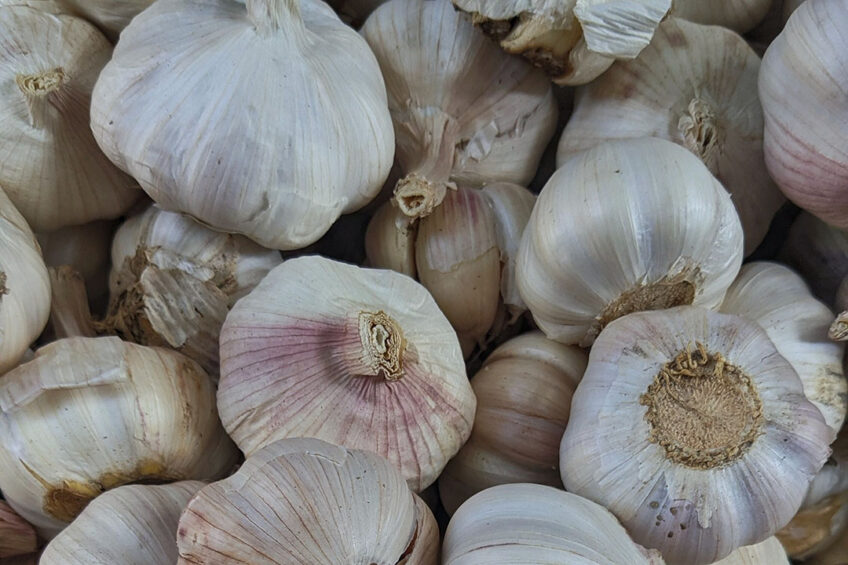The potential of garlic against coccidiosis in broilers

A study published in the Journal of Applied Poultry Research concludes that garlic and its bioactive compounds exhibit anti-inflammatory and antioxidant properties and that there are various benefits to the supplementation of garlic in coccidiosis-infected broiler diets.
The protozoan parasites of Eimeria spp. penetrate and propagate in the epithelial cells found on the surface of the small intestines of chickens. While subclinical symptoms of coccidiosis manifest in the deterioration of the mucosal barrier and result in poor growth performance, clinical symptoms may extend to widespread consequences like haemorrhage and death. Major economic losses also, therefore, result due to poor performance, increased mortality, and low absorption of digestible nutrients. And so, the search for alternatives for the prevention and treatment of coccidiosis continues.
The defensive and therapeutic potential of garlic
Phytogenic extracts have been reported to possess defensive and therapeutic potential against artificially induced coccidiosis in chickens, and garlic, over many millennia, has been used as a curative plant. The authors of this study* have summarised the potential effects of garlic on broiler chickens artificially challenged with Eimeria spp. in Table 1.
The researchers determined that different proportions of garlic products administered improve growth performance and decrease faecal oocysts output, lesion score, and pathological signs post-infection. Their results are shown in Table 2 below.
Oxidatie stress
Coccidial infection in birds stimulates high concentrations of serum nitric oxide (NO) and Malondialdehyde (MDA) due to oxidative stress. These elevated levels of oxidative stress markers could be associated with the improved immune cell activity that results in the excessive production of free radicals.
Interestingly, the researchers noted that supplementation of garlic powder in the diets of coccidiosis-challenged birds showed a positive reduction in serum NO and MDA but did not influence the antioxidant enzyme, superoxide dismutase. This suggests that garlic has the potential to reduce oxidative stress in infected birds.
Synergetic activities of garlic against coccidiosis
The researchers also considered the potential of garlic combined with other chemicals and phytogenics against coccidiosis. These results can be seen below in Table 3. Various blends of herbs, including garlic, thyme, oregano, eugenol, pawpaw and pomegranate extracts, and essential oils, have been tested on coccidiosis-infected birds. The disparity in the results could be due to the levels of inclusion of each herb and the concentrations of bioactive components available in the mixtures.
In conclusion…
In conclusion, while high levels of garlic can cause liver damage in chicks, the research team confirms that supplementing garlic in coccidiosis-infected broiler chickens improves weight gain and feed efficiency, and decreases pathological signs, faecal oocysts output and lesion score post-infection.
*The authors of this study are B. Adjei-Mensah and C.C. Atuahene from the Regional Centre of Excellence in Poultry Science at the University of Lome in Togo, and the Department of Animal Science at Kwame Nkrumah University of Science and Technology in Ghana. Their study was published in the Journal of Applied Poultry Research.












